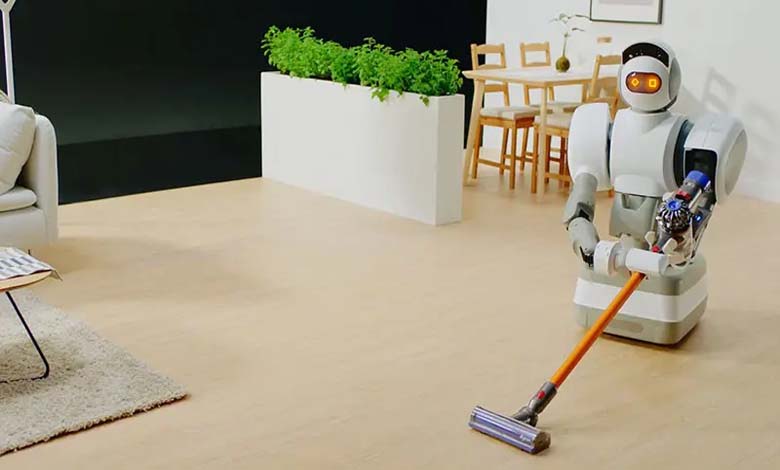With “unique” capabilities… a smart robot for cleaning homes and working in factories

A team of researchers from the Vienna University of Technology has developed a smart robot capable of learning simple tasks and performing household chores, such as cleaning sinks and other household tasks.
-
Study: Humans May Accept “White Lies” from Robots
-
Development of a robot guiding towards an “ideal” future life
This innovation marks a significant step towards creating more capable home-cleaning robots that can handle daily tasks efficiently.
The new robot has a unique ability for self-learning, based on a combination of observation and tactile data derived from human movements.
-
A Study Reveals Children Trust “Robots” More Than Humans
-
“Killer Robots” and Wars… Can Humans Escape the Trap of “Bald Head”?
For instance, the robot learns how to move a sponge along the curved and complex edges of a sink—a task previously considered extremely challenging to program due to numerous factors, such as the appropriate angle, required speed, and pressure to apply.
This technology is not limited to domestic cleaning applications but could also revolutionize various industrial tasks, such as painting or polishing surfaces, making robots valuable tools for workshops and factories, according to a report published by “Interesting Engineering.”
-
Benefits and Risks: How Artificial Intelligence Affects Children
-
Turning Notes into Voice: A New AI Feature from Google
The research team developed a cleaning tool equipped with sensors capable of measuring force and tracking movement, allowing the robot to learn by observing how a human cleans the front edge of the sink. This way, the robot could collect vast amounts of data on how to perform the correct movements.
These data are then statistically processed and used to train the robot‘s neural network, enabling it to recognize the movements required to clean complex surfaces, even if it has only been trained on part of the task, such as cleaning the edge of the sink.
Through this process, the robot learns to adapt to different surfaces; for example, it learns to hold the sponge differently on curved surfaces compared to flat surfaces and adjusts the pressure according to the type of surface.
In the future, robots could be equipped with mobile platforms to function as assistants in workshops or factories, making them more flexible in performing various tasks. Additionally, these robots could “transfer” the knowledge they have acquired to other robots, helping to accelerate the learning process and improve overall performance, according to the report.












